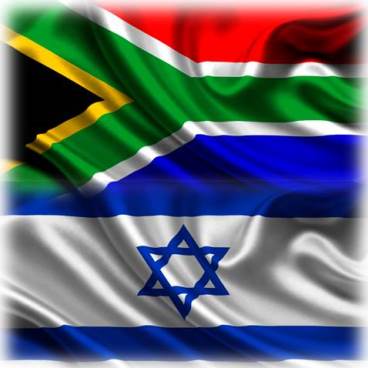
News

Who are South African olim voting for?
PAULA SLIER AND ALLISON GOSNEY
When asked which of the candidates they want as prime minister, 39% of Israelis polled answered Prime Minister Benjamin Netanyahu (the leader of the Likud Party), while 34% preferred Benny Gantz, who heads up the Blue and White Party.
But South African Israelis are keeping schtum. A little like the expression, “You can take the person out of South Africa, but not South Africa out of the person,” most of those interviewed by the SA Jewish Report preferred not to say who they plan to vote for.
Traditionally most South Africans tend to be centre right politically, and are also deeply Zionist. Ideology is important to them.
Dorron Kline, the Chief Executive of Telfed, the South African Zionist Federation in Israel, stresses that elections are a private affair.
There is no data or research on who South Africans in Israel vote for. Still, he believes most cast their ballot in line with the youth movements they come from.
However, neither South Africans nor other native English speakers vote as a bloc in Israel.
Gone are the days when they would vote for a party because it has an English speaker high on its list, just like Russians no longer vote for a party because it’s fronting a Russian candidate.
There are about 300 000 native English speakers in Israel. About 25 000 of them (0.08%) come from South Africa, including the second generation. There are no figures as to how many of these South Africans are eligible to vote in next month’s Israeli elections, but according to the Israeli interior ministry, about 250 000 English speakers can cast their ballot.
For an Israeli political party to enter the Knesset (Parliament), it needs to pass a threshold of 3.25%. This translates into roughly 188 000 votes. After passing the threshold, for every additional Knesset seat, a further 40 000 votes are needed.
This means that if every eligible first-language English-speaking Israeli votes on 9 April, together they could secure six Knesset seats – not a bad showing.
By comparison, even if every South African living in Israel voted for the same party, it would not secure one seat. South Africans might be insignificant in voting numbers, but the so called “Anglo vote” of which they are a part is important.
Political parties see the value, and in recent years have been paying an increasing amount of attention to the English-speaking Israeli community. In the run-up to next month’s elections, many have been hosting English-speaking events around the country.
But Marc Philip Spiro, a new immigrant from Johannesburg living in Ra’anana, says it’s not enough.
“There’s a lack of information in English about the basics of what the parties are all about, and also a lack of information in English about what the candidates believe.”
“I’m hoping for an extension of aliyah benefits and support for olim [new immigrants],” he says.
But for most Israelis, the elections are about broader issues than that. Security concerns, social benefits, and even more importantly whether or not to keep Netanyahu in office are the main dilemmas.
Raphi Bloch, who immigrated to Israel from Zimbabwe 28 years ago, is fairly representative in believing that Netanyahu is the most experienced person for the premiership. But that doesn’t necessarily mean he supports him.
“Maybe it is time for a change, but Bibi [Netanyahu] has proven that he can handle Israeli and international politics. He has proven that he has international abilities second to none that bring results for the country. None of the leaders of the other parties are ready and experienced enough to lead the government. A successful general or military expert is not necessarily a good politician.
This does not necessarily mean that Bloch will vote for Netanyahu or his Likud party. Dramatic changes to Israel’s political landscape in recent weeks have left up to half of voters undecided, according to an Israel Democracy Institute survey.
“I will be voting centre to right, but I have not yet decided who exactly I will vote for,” Bloch says. “I will be making up my mind closer to the election date. So much can change within a week – it’s like planning a wedding without a bride and groom. Because single votes are extremely important when forming a government in Israel, I will not vote for a really small party as I don’t want to waste my vote for a party that does not pass the election threshold.”
Ziona Wolffe Agulnik who emigrated for the first time from Johannesburg to Israel in 1973 and today lives in Kfar Saba, is one of those South African Israelis who prefers to keep her politics private. But she is outspoken about the damage she thinks all the politicking and jostling for power has done.
“I believe this election has created a divide and hate between the normally united citizens of our beautiful country. We can all have political differences, but this should not lead to the dislike of the unlike. My wish for the future is that we can become more united,” she says.
For Agulnik, a vital issue is the high cost of living. She wants social and health benefits to be increased for young and old.
Ra’anana resident Lance Blumenthal, who made aliyah three years ago from Johannesburg, is another undecided voter. He’s looking for a party that can best create a future that involves “increased innovation, global outreach, economic development in different areas, and obviously sustained peace and security.”
It’s a tall order, but one that in the remaining weeks until the elections all parties will try to convince the undecided 50% of the electorate they can deliver on.




